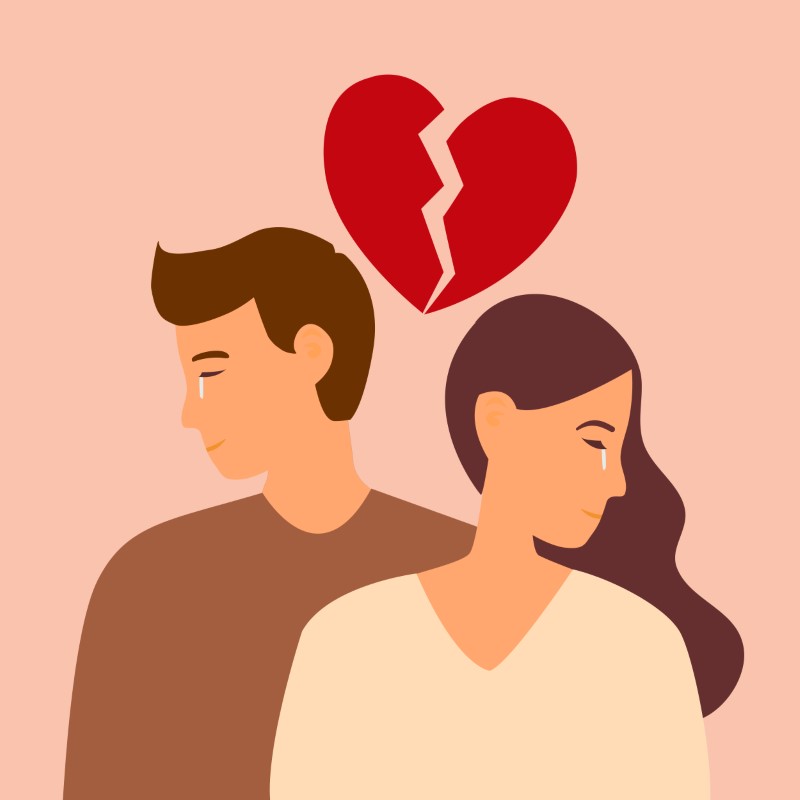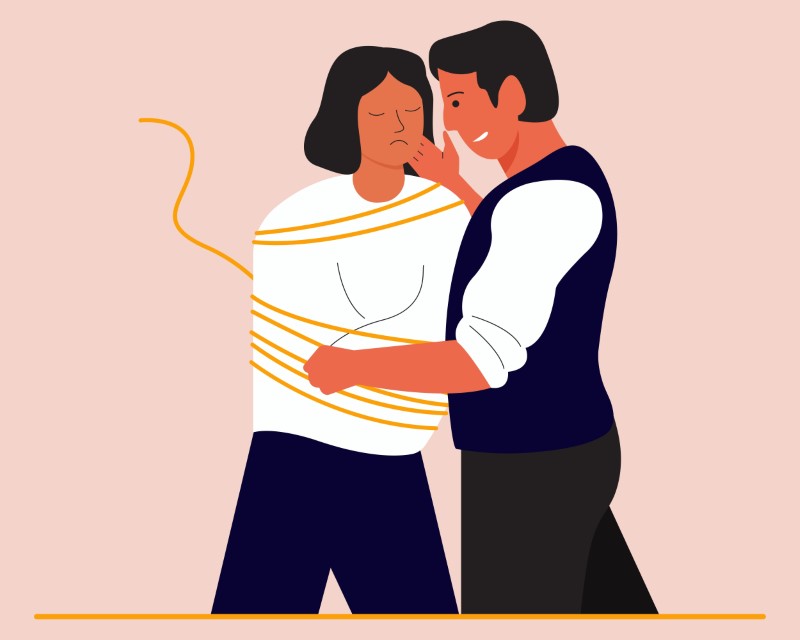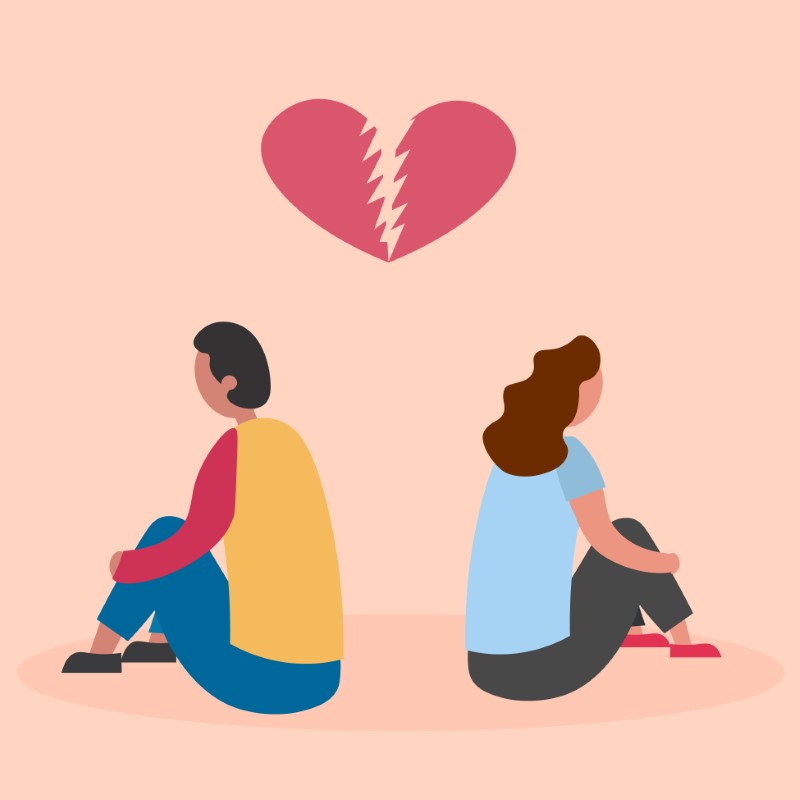If you are someone who is wondering if your relationship is toxic and if it can be saved, then we need to set some realistic expectations.
Perhaps you have an inkling that your relationship with someone you’re dating is toxic, or maybe friends and family have warned you.
Or possibly you are experiencing the same fights, gaslighting, name-calling and destructive patterns over and over again. It messes with your self-esteem and affects your mental health and you realise something has to change.
Either way, you are here because you want to know if the relationship you are in can change into something more fulfilling and healthy.

How do I know that I’m in a toxic relationship?
A bad period in a relationship doesn’t mean it’s necessarily a toxic relationship. Every relationship will have seasons of growth and conflict, so it’s important to be able to identify clearly if your relationship really is toxic.
Here are several tell-tale signs of a toxic relationship that are unhealthy:
Constant conflict
Whilst some conflict and common relationship issues are normal, you should not be constantly fighting. If that conflict doesn’t resolve itself and continues to escalate then chances are your relationship is toxic.
Healthy relationships have discussions that produce progress, not blow-ups that hurt one another and cause division.
No peace or progress
Even in difficult periods you can still have a deep sense of peace. If your relationship has constant stress and anxiety and you have more confusion than you do peace then it is toxic.
A couple that stagnates or goes around in circles is a couple that lacks fundamentals to make that relationship healthy and fulfilling.
Constant fear
If you are fearing for your safety and well-being or you never feel secure and at peace with the person you are with then your relationship is toxic.
A healthy relationship will not cause you to walk on eggshells or feel you have to tiptoe around issues or someone’s temper.
Abuse of any kind
Abusive behavior should never be tolerated or justified and is a clear sign of toxic behaviour. Whether it is verbal, emotional, physical, mental or sexual abuse it is something that should be addressed immediately.
More subtle signs of abuse include being gaslighted, controlling behavior or constantly put down. Narcissists are professionals at producing and feeding toxic relationships.
Lack of growth or accountability
If your relationship is not growing, then it is dying. And if both partners are not taking responsibility for their actions and roles in the relationship, the relationship will stagnate or continue to become toxic.

Reasons Why People Fall into Toxic Relationship
It’s not exactly the fairy-tale dream to start a serious relationship that then turns toxic. The majority of us are not masochists looking to self-sabotage our love lives, so why then do we find ourselves attracted and attaching to toxic people?
There are really only 3 reasons why people find themselves in toxic relationships and here they are:
1: Fear – Whether it be fear of missing out on love, so you accept anyone and anything they do. Or fear of dying alone and being abandoned, so you cling to someone instead of learning to be your own person.
Our fears are as powerful as we allow them to be, and if you lack awareness around them they will tend to control your subconscious. When we permit fear to control our actions and attachments it manifests as toxic relationships and behaviours.
2: Lack – If you are loving from a place of lack then you leave too much room for unhappiness and for anything to fill that void. Whether it be lack of self-awareness or lack of boundaries and self-love; this can cause you to have people take advantage of you in relationships.
3: Upbringing – Ultimately your preferences that produce your fears and lacks and the response to them all stem from your childhood. How you experienced relationships and love from a young age influences how your brain perceives and seeks out attachments.
If you had parents who fought constantly, you may be someone who seeks out or creates conflict and drama yourself. If you never felt loved or accepted you may have the tendency to lack boundaries and be a people pleaser as you are trying to earn love and are scared of rejection.
If you had parents who had a broken marriage you may attract emotionally avoidant types or find you want to try and fix broken people.
Ever heard of love addiction? It can also cause a relationship to be toxic. Read on to find out more about what it is.

Does it make sense to repair a toxic relationship?
Depending on the level of toxicity of a relationship, some can actually be healed and saved. However, this needs to be monitored so that you aren’t seeing an unhealthy relationship through rose coloured glasses.
Remember one of the key reasons why relationships become toxic in the first place is because detrimental behaviour is looked over or rewarded because the other person keeps investing into the relationship.
The key is to break the toxic relationship cycle, otherwise you cannot fix this type of relationship.
Here are the only reasons that give you a chance to repair a toxic relationship:
- The person is willing to work on themselves and is actively doing something about it. They are consistent with the effort needed in order to change the toxic behaviour and dynamics.
This doesn’t mean that they put in effort one time and that’s it. You need to be able to see real change consistently from this person to make sure it is stabilised. - There is a professional involved who is able to advise and mediate and give a subjective opinion. This shouldn’t include family members, friends and loved ones but someone who either specialises in therapy or counselling.
This might mean that the person works on themselves while being separated from you in order to really keep them accountable to the change that is needed. - The relationship and each person is able to let go of the past and move forward. Healing is essential to being able to turn your toxic relationship into something healthy.
Holding onto resentment, anger and unforgiveness is not leading to peace. There is no point living in the past if you want to be able to move forward. - Any toxic behaviour has a consequence and a process takes place. This means that there is accountability and boundaries in order to set the standard that this type of relationship needs.
- There is no abuse. Staying with an abuser hoping they will change is not going to give you the answer you are looking for. Under no circumstances should anyone try and fix a toxic relationship if they are being abused in any capacity.
Ways to fix a toxic relationship
If you have decided to try and fix your toxic relationship, then you need to give it and yourself a fighting chance. It’s not to say that people and circumstances can’t change, however we need to be sure that we handle unhealthy relationships with wisdom and boundaries.
Here are the smart ways to be able to try fix a toxic relationship:
Professional help – You cannot do this alone, nor should you. A third party needs to intervene to keep both people accountable and give the right strategy and guidance. Having just family and friends trying to help you isn’t enough, you need an objective and unbiased trained opinion.
This can be couples therapy or seeing a therapist that helps you debunk toxic behaviors and abusive relationship patterns.
Constant accountability – This means weekly if not daily check ins with a professional therapist, counsellor or coach. It also means being honest with friends and family when you relapse. Accountability isn’t an attack on who you are, but rather a conscious check in, constant inner work to make sure you are on track.
Time and grace – Toxic relationships will take patience and forgiveness. You cannot repair it overnight, this is a marathon not a sprint. There will be relapses and moments that make you question whether or not it is worth it and if it can be salvaged.
In moments of wanting to give in or give up you have to choose wise actions over those overwhelming feelings.
Stronger communication – Healthy communication that is effective will be key in helping you both progress through this. This means learning how to talk without it escalating to a fight. And knowing how to give and receive constructive criticism without constantly being defensive.
Boundaries and empathy – Boundaries are imperative in being able to fix a toxic relationship. Without boundaries, you cannot set a healthy standard of accountability and progress. Setting parameters helps you communicate your worth and expectations whilst also giving consequences to certain behaviours.
Empathy on the other hand helps communicate understanding and grace. However it should not be used to justify toxic actions. Understanding and empathising with the reason for toxic patterns doesn’t mean agreeing or endorsing this kind of behaviour.

How to leave a toxic relationship
In most cases, toxic relationships should not be continued and it’s best to know how to leave one. Even if it is a serious relationship, it doesn’t mean that you should continue to tolerate destructive behaviour.
If you have decided that your toxic relationship cannot be fixed and that you need to end it, here are the key things you now need to focus on:
Have a plan – The first thing to do is have a plan on how you will leave the relationship and cope afterwards. Just leaving it to chance means less clarity, accountability and direction. Get practical when it comes to your exit plan right down to budget, where you will live if necessary and how you plan on rebuilding your heart and life.
Get some support – Even if you think you can do it on your own, don’t. Get some support around you either through friends, family or professional help. Having a support team or community means you can have someone to check in when you feel weak or need an objective opinion on something. It also helps aid the healing process.
Put restrictions in place – Whether this is the no contact rule, blocking their number or having a mediator; you need to have strong boundaries in place to protect and progress.
Focus on healing – The bottom line is that break ups are hard, even when you know it was done for the right reason. Allow yourself to grieve the toxic relationship, however balance that pain out by focusing on healing and moving forward.
Set yourself some new goals, build up your self-worth and take time to pour back into yourself.
FAQ you need to know about Toxic Relationships
Can you fix a very toxic relationship?
Whilst some very toxic relationships have successfully been turned around, it isn’t something that a lot of people experience. Staying in a very toxic relationship hoping it will change or because you saw it work for someone else is not wise. This sets you up for an unrealistic expectation and even more hurt and pain.
Can a toxic person change?
Is it worth fixing a toxic relationship?
In most if not all cases there needs to be professional counselling or therapy involved.